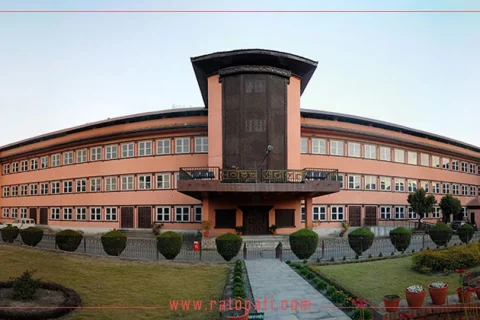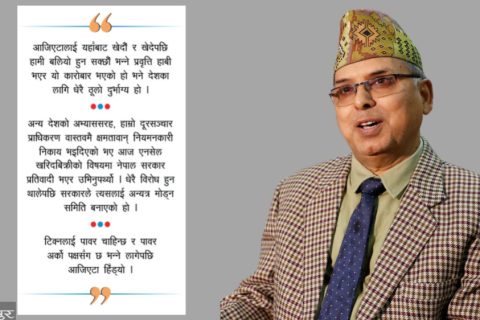Justice is a moral concept about what is right, fair, appropriate, and deserving. As a concept of righteousness, it builds on ethics, rationality, natural law, equity, fairness and similar principles. This is the reason why justice happens to be a complicated subject. Nevertheless, it is a subject that has been subjected to rigorous philosophical, legal and theological debates throughout the history.
Amartya Sen’s new book The Idea of Justice ( Penguin-Allen Lane, 2009) is a major addition to these debates. A Lamont University Professor at Harvard, Sen presents in this book his theory of justice in a very broad sense. His understanding is based on a positive analysis of already existing general theories in this regard. Its aim, as Sen points out, is to “clarify how we can proceed to address questions of enhancing justice and removing injustice, rather than to offer resolutions of questions about the nature of perfect justice.”
Dedicated to John Rawls, who wrote A Theory of Justice in 1972, one of the primary texts in political philosophy, the book goes far beyond his concept of justice. In his book, Rawls highlighted the problems of distributive justice at length and offered the concept of justice as fairness to solve the ensuing problems.
From fairness, Rawls derived his theory of justice which contained two important principles: the liberty principle and the difference principle. He argued for a principled reconciliation between liberty and equality. He also emphasized that “most reasonable principles of justice are those everyone would accept and agree to from a fair position.”
John Rawls built on philosophical foundations laid by Kant and Rousseau – the two important predecessors in this area (among many others). He employed a number of thought experiments – including the famous veil of ignorance – to determine what constitutes a fair agreement in which “everyone is impartially situated as equals,” in order to determine principles of social justice.
Amartya Sen who won the Nobel Prize in Economics in 1998, explores in this book the ways in which, and the degree to which, justice is a matter of reason, and of different kinds of reason. It is in the nature of human beings that they hardly agree on a final, perfect set of institutions and rules. Disagreements are quite common everywhere. It is because not everything is in principle resolvable. Moreover, different people regard different positions as just. As such, Sen argues that there is no need to overcome disagreement. The search for a perfect set of arrangements can distract theoreticians from tackling injustices that the human society needs to confront.
Sen’s work is not grounded in idealised justice. It is grounded in what can be made to work practically in the real world. He argues that a philosophy of justice should require the agreement not just of the community which is making the laws, but of important outsiders also. The whole world has a role in it. It is in the nature of reason, says Sen, that it does not allow all questions to be settled from first principles; But these pluralities are not a shortcoming.
Amartya Sen has divided his book into four parts and eighteen chapters after sharing with the readers his approach to justice at the outset.
Part 1 deals with the demands of justice in general. It has four chapters which cover reason and objectivity in the justice discourse; Rawls’ theory of justice and beyond: institutions and persons; voice and social choice: impartiality and objectivity; and analysis of closed and open impartiality.
Part II deals with forms of reasoning. It also has four chapters: position, relevance and illusion; rationality and other people; plurality of impartial reasons; realization consequences and agency.
The materials of justice are discussed in Chapter III. It also has detailed explanations on lives, freedoms and capabilities; capabilities and resources; happiness, well-being and capabilities; and equality and liberty.
The last part explains democracy as public reason. Here he also gives his impression about the practice of democracy, human rights and global imperatives, and the place of justice in the world.
Amartya Sen holds that justice has a key role to play in the concept and practice of democracy. But his emphasis is not in terms of the institutions of a democratic state, but in terms of its capacity to enrich reasoned engagement. Democracy allows public argument and debate. It allows public reasoning. “The working of democratic institutions, like that of all other institutions” depends on the activities of human agents. But democracy “has to be judged not just by the institutions that formally exist, but by the extent to which different voices from diverse sections can actively be heard.”
At the heart of Sen’s argument is a respect for reasoned differences in our understanding of what a “just society” really is. He stands firmly within the traditions of Anglo-American philosophy, but the book is full of philosophical references from the Indian sub-continent and their analysis in view of contemporary problems. He has been able to bring Buddha, Ashoka and Akbar in his theoretical discourse in such a way that nobody ever even tried to do.
The book is long and repetitive at times. But the breadth of Amartya Sen’s vision and intellectual keenness make it an outstanding work for every thinking person.
lawyers_inc_nepal@yahoo.com








